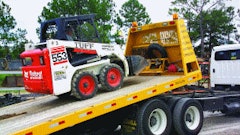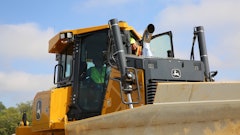
When it comes to contractors, “what’s next?” can refer to backlog, open bids, projected expenses, fuel costs, material costs, healthcare and, of course, equipment costs. I suppose you can guess we are mainly going to cover the equipment cost part of your business equation.
You have probably come across how well United Rentals is doing after its acquisition of RSC, and how the majority of equipment purchases are being made by rental companies. By rental companies, we include all sources of rental, from dealers to pure rental houses.
The American Rental Association reports that 51% of construction equipment sold in 2011 went into rental fleets. The numbers after 2011 reflect that rental revenues are expecting high single-digit growth in 2013, with double-digit growth in 2014 and 2015. In short, what the stats are saying is contractors will continue, or have learned, to rent because it reduces both risk and cost.
Rent or Buy — That is Still the Question
The question about renting vs. buying comes up on a regular basis. It is getting so much play that even the statistical folks are including rental stats in their presentations.
Eli Lustgarten, an industry analyst who covers equipment manufacturers, shares his analysis with equipment dealers and manufacturers at various industry events. I even invite Eli to appear at the Associated Equipment Distributors’ CFO conferences I manage every year. As we spent more and more time at these conferences discussing rental, I asked Eli to include his thoughts on the rental business as part of his presentation, which proved very helpful.
I also saw the latest ISI Group Machinery Report, which contains about 100 pages of data and commentary about the national and global equipment markets. This report really tells you what is happening in the new and used equipment markets. Regarding North America, it makes the comment that the “market is still leaning toward rent over own,” despite growing contractor confidence in their project backlogs. Kind of what I expected.
ISI added a new survey question for dealers asking if they felt contractors see backlogs growing to a level where they are confident enough to consider buying equipment rather than renting. Of the respondents, 57% said “no” and 43% said “yes.” To the 43%, I say, “Are you crazy??”
After calming down, I realize many contractors in the energy sectors probably have enough work to justify owning a machine and taking on a five-year note or lease payment. I also suspect larger contractors that win bids to do large, long-term work can afford to take the risk of buying a machine.
I hope, but don’t know, if that makes up the majority of the 43%. For those of you who don’t fall into one of the two categories above, I have to ask you to seriously think this through one more time before signing on the dotted line.
I’m afraid I’ve become a rental geek, believing it is more likely than not that rental is more cost effective and risk averse (at this stage of the game) vs. buying, unless it just does not work for you. “Does not work for you” means you just can’t rent the kind of equipment you need when you need it and still run a profitable operation.
Where Are You Financially?
Now before you think I’ve lost my mind, we need to go back to the original ISI question. The way it is written tells me that a contractor who has the option to rent or buy (meaning this is an option for the business) is starting to see enough work to justify a purchase rather than renting. This assumes, of course, that the contractor knows that this choice does in fact work for the business and that renting for the work on the books would cost more than the cost to own and operate a similar unit. Financially speaking, can you make the same kind of decision?
So “what’s next” for contractors is to not believe that the stock market relates somehow to the real world, because it does not. While we have some hot areas, the U.S. economy is still not looking solid, with any expected housing recovery still somewhat shaky. So I wouldn’t be sticking my neck out to take on note or lease commitments unless I’m in one of the two “hot” categories noted before.
Play it safe folks and please get some help if you need to measure your owned equipment costs against rentals.





























